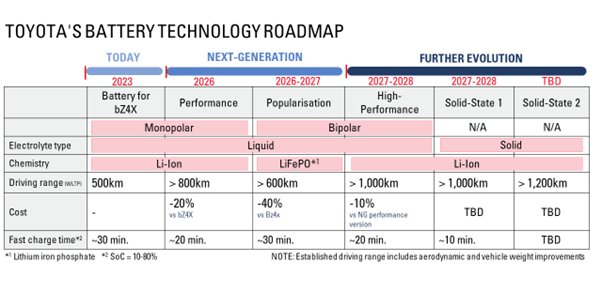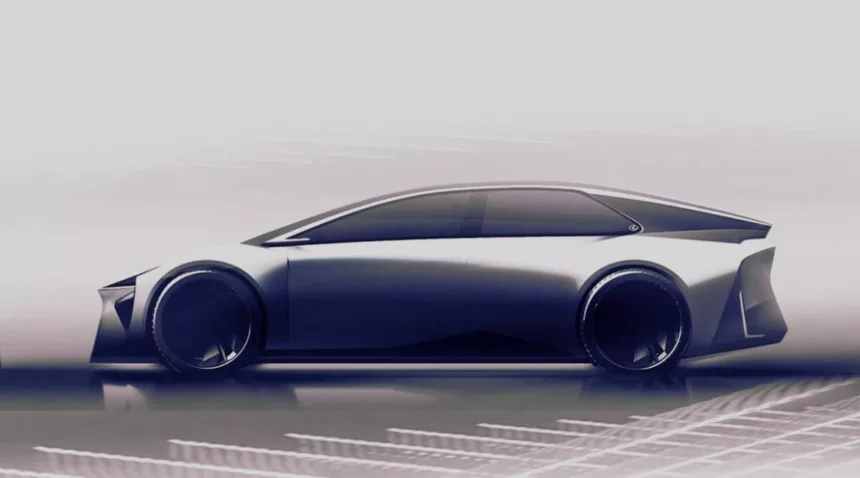Toyota recently celebrated a significant milestone, surpassing the production of 300 million cars in its 88-year history. Despite being a pioneer in hybrid powertrains, Toyota has been cautious about fully embracing electric vehicles (EVs). However, with the appointment of new CEO Koji Sato, the company is undergoing a transformative shift towards EVs, aiming to compete with a slew of new models and innovative battery technology.
A notable addition to Toyota’s EV lineup is a three-row SUV slated for production at the Georgetown, Kentucky plant starting in 2025. This SUV, targeting a similar market segment as the Kia EV9, will utilize batteries manufactured at Toyota’s Liberty, North Carolina facility, which is poised to expand from 2000 to 5000 employees.
By 2030, Toyota plans to produce 30 gigawatt-hours (GWh) of batteries annually in North Carolina, catering to various EV and plug-in hybrid models. The company is steadfast in its commitment to manufacture 3.5 million EVs annually by 2030, boasting 30 different models under the Toyota and Lexus brands. Significantly, a considerable portion of this production is expected to take place in the United States.
 Toyota’s battery technology is also set to evolve rapidly. The company revealed plans for an ultra-compact high-performance next-generation lithium-ion battery, showcased in the Toyota FT-Se and Lexus LF-ZC concepts. This battery, with a height of just 3.9 inches in its lowest configuration, is anticipated to debut in 2026. It promises a 20% reduction in production costs compared to the bZ4X’s pack and a rapid 10 to 80 percent fast-charge time of around 20 minutes, all while delivering over 400 miles of EPA range in optimal conditions.
Toyota’s battery technology is also set to evolve rapidly. The company revealed plans for an ultra-compact high-performance next-generation lithium-ion battery, showcased in the Toyota FT-Se and Lexus LF-ZC concepts. This battery, with a height of just 3.9 inches in its lowest configuration, is anticipated to debut in 2026. It promises a 20% reduction in production costs compared to the bZ4X’s pack and a rapid 10 to 80 percent fast-charge time of around 20 minutes, all while delivering over 400 miles of EPA range in optimal conditions.
Following this, Toyota plans to introduce a more cost-effective next-generation pack with lithium-iron-phosphate battery (LFP) chemistry and a bipolar internal design. This pack, set to launch shortly after the high-performance pack, is projected to be 40% cheaper than the bX4X’s battery, featuring a 30-minute fast-charge time and offering about 315 miles of range in its largest configuration.
In 2027, Toyota aims to release a high-performance bipolar pack, reverting to lithium-ion chemistry and a high nickel cathode. This pack, touted to be 10% cheaper than the performance battery, boasts a 20-minute 10-to-80% recharge time under optimal conditions and a claimed 520-mile driving range.
The much-anticipated solid-state batteries are on Toyota’s horizon, slated for introduction in 2027. These batteries, utilizing solid electrolytes, aim to achieve approximately 520 miles of range with a 10-minute 10-to-80% charge capability. Toyota envisions subsequent evolutions pushing peak range up to an impressive 630 miles.
While Toyota’s solid-state battery introduction has been delayed from the initially quoted 2025, the company remains ambitious in its electrification goals. If Toyota can deliver on these promises, it is poised to transition from an electrification laggard to a frontrunner, with plans to produce 3.5 million EVs annually across 30 different models by 2030.










